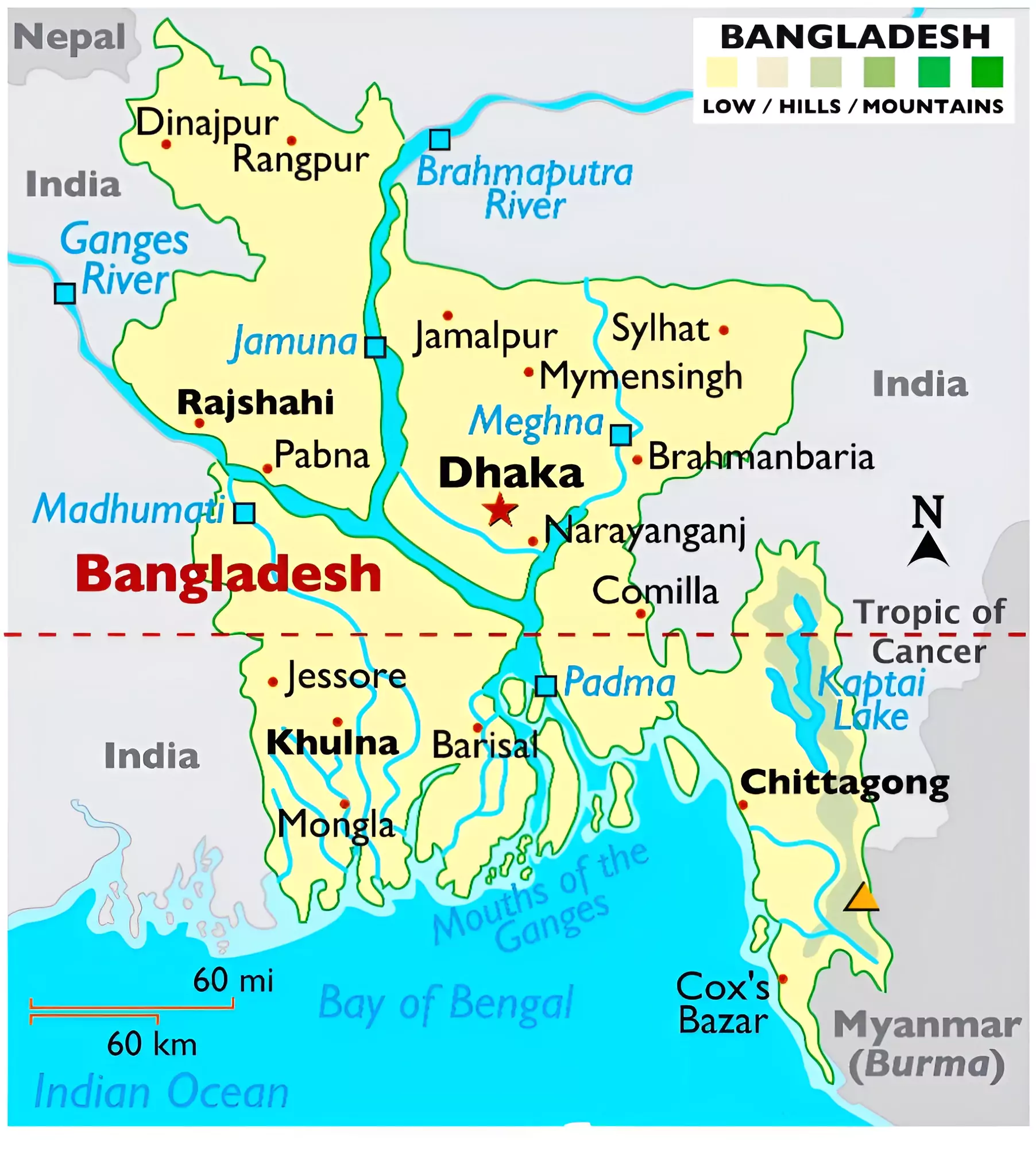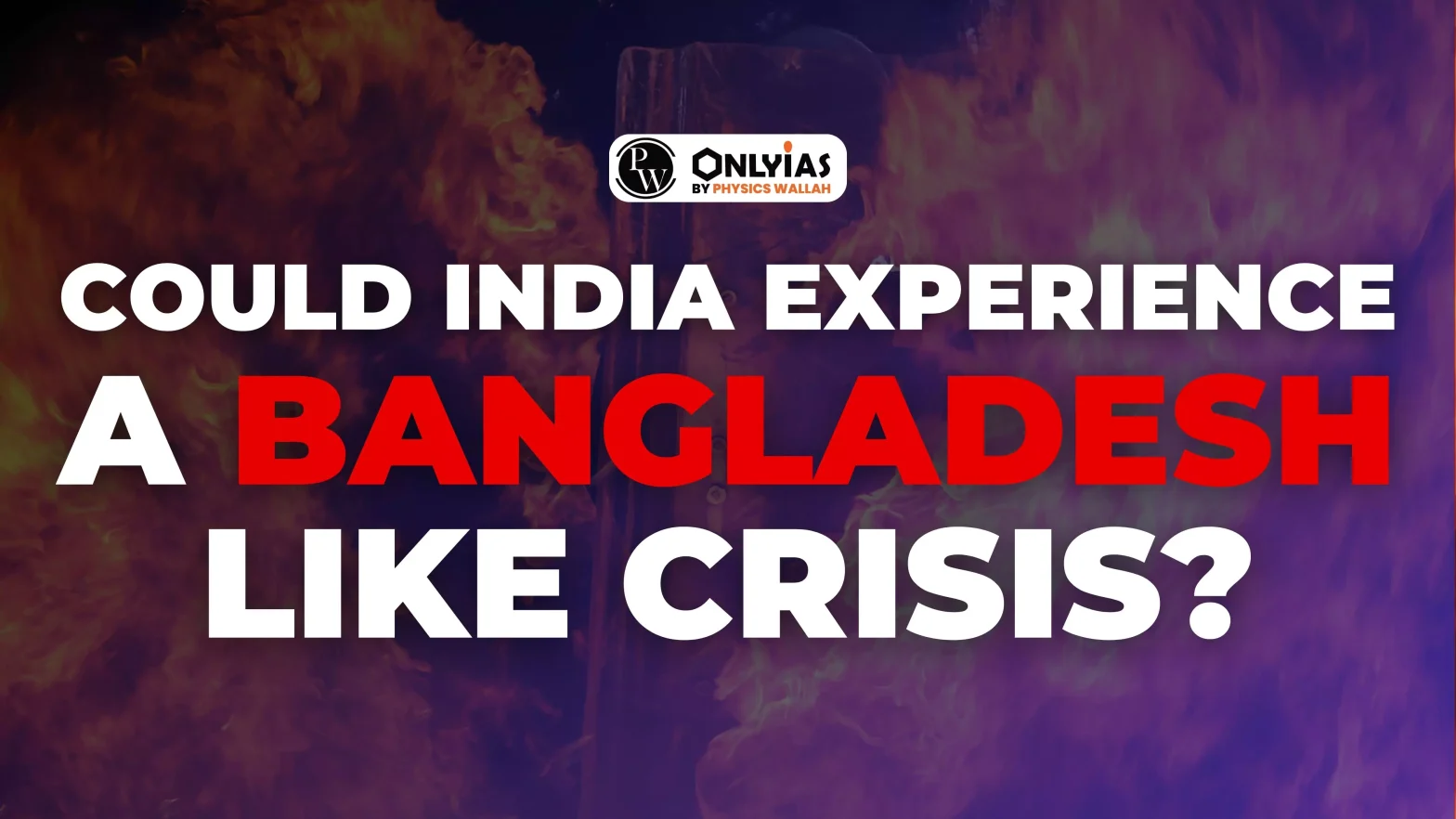In Bangladesh, at least 300 people reportedly died in the violence. Curfews were imposed and the internet was shut down for several days, impacting the day-to-day operations in the “fragile” economy.
Historical Context
- Emergency Period in India (1975-1977):
- General TN Raina refused to involve the army in politics during the Emergency.
 Demonstrated professionalism and apolitical nature of the Indian Army.
Demonstrated professionalism and apolitical nature of the Indian Army.
- Freedom Struggle Legacy:
- Indian freedom struggle based on values, especially Gandhian non-violence.
- Shaped Indian mindset towards peaceful protests.
Constitutional Framework
- Indian Constitution:
- Bangladesh Constitution:
- Multiple changes to basic structure.
- 8th Amendment: Declared Islam as state religion.
- 15th Amendment: Removed caretaker government provision for elections.
Enroll now for UPSC Online Course
Political System
- India:
- Multi-party system.
- Federal structure with strong state-level parties.
- Smooth transfer of power historically.
- Bangladesh:
-
- Tendency towards one-party rule.
- Awami League in power for 15 years.
- Accusations of dictatorship against Sheikh Hasina.
Military and Governance
- India:
- Concept of “Coup-proofing” (Steven Wilkinson).
- Clear separation between military and internal affairs.
- Paramilitary forces (CRPF, CISF) for internal security.
- Bangladesh:
- Military interference in internal matters.
- History of coups and political instability.
Check Out UPSC NCERT Textbooks From PW Store
Societal Structure
- India:
- Highly diverse (ethnicity, language, religion).
- Diversity acts as a safeguard against uniformity in public opinion.
- Bangladesh:
- Relatively homogeneous society.
- Easier to mobilize the population on single issues.
Economic Factors
- India:
- Diverse and resilient economy.
- 5th largest economy globally.
- Not dependent on a single sector.
- Bangladesh:
- Economy heavily dependent on textile sector.
- Vulnerable to sector-specific fluctuations.
Enroll now for UPSC Online Classes
Conclusion
Despite some surface-level similarities, India’s robust democratic institutions, diverse society, and economic resilience make it unlikely to face a situation similar to Bangladesh’s recent crisis.
![]() 8 Aug 2024
8 Aug 2024

 Demonstrated professionalism and apolitical nature of the Indian Army.
Demonstrated professionalism and apolitical nature of the Indian Army.